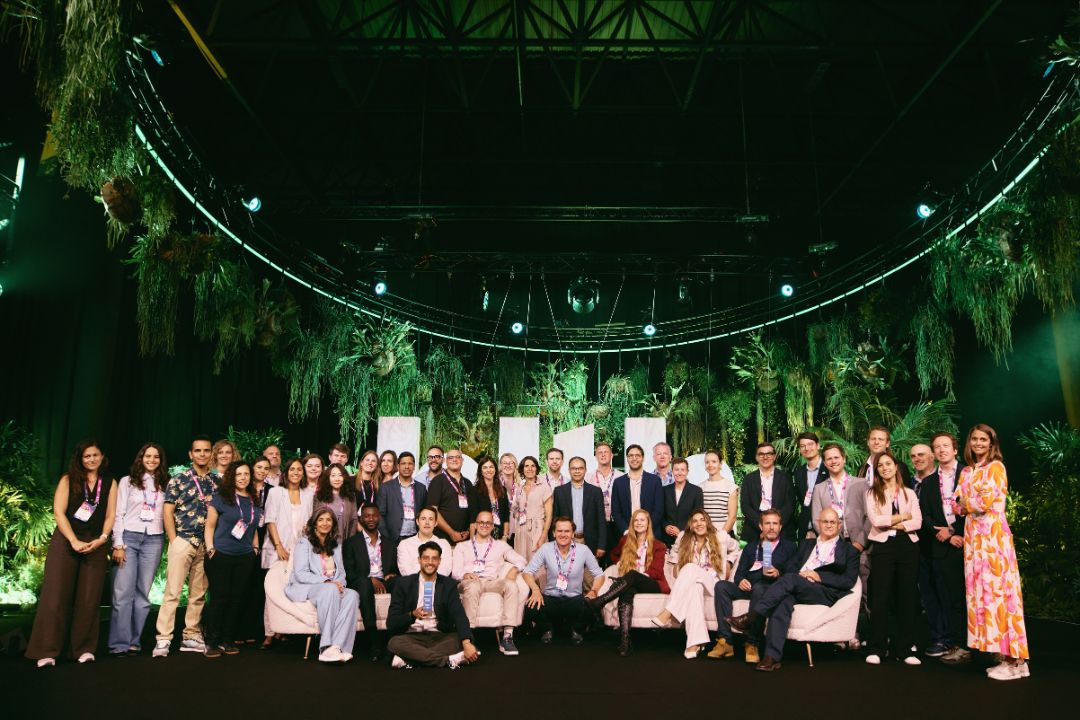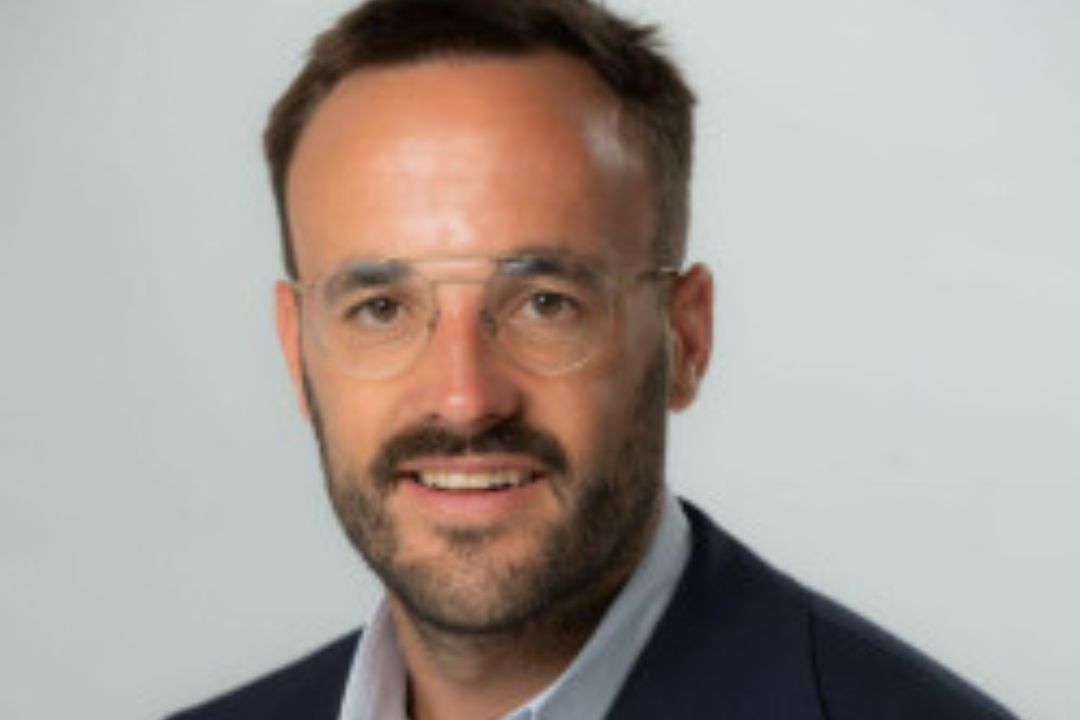27th September 2022
As part of EIT Health Ireland-UK’s Meet the Team series, this month we interviewed David Pollard, Education Lead. Aside from being an avid hiker, climber and all-round travel guru, David is a Ph.D. Candidate in Inclusive Design and Creative Technology Innovation at SMARTlab, University College Dublin (UCD), where he combines his passion for design, technologies and education.
Prior to joining EIT Health Ireland-UK, David founded Sapien Innovation, a start-up that designs and delivers custom innovation and design thinking workshops, training, consultation, sprints and hackathons.
During the pandemic, David co-founded TeamOSV which brought together over 5,000 innovators from across the world to develop rapid open-source solutions for challenges faced by the public, governments, and healthcare ecosystems. TeamOSV was nominated for an Irish Red Cross Humanitarian Award in the Innovation for Change category, and has been featured in Forbes, Fortune Magazine, and New York Times. David also holds the role of Irish Ambassador for the European Union’s Electronic Platform for Adult Learning in Europe (EPALE).
At EIT Health, David is the lead for the building and development of EIT Health’s new European-wide digital learning platform, the EIT Health Academy. The aim of this learning platform is to create sustainable, scalable lifelong learning pathways in health innovation.
When we caught up with David he gave us his take on the role education plays within Europe’s largest health innovation network, and set out key steps in problem solving through design thinking.

Tell us about your journey into education.
Learning should be a lifelong practice taking place in formal and informal environments. My philosophy stems from teaching adults with learning and physical disabilities. I was fascinated by my learners’ interactions with assistive and learning technologies. I examined why these technologies had been developed and how they had found their way into our classroom. In all cases, they were born from a response to a clearly defined need. This sparked my interest in product and service development and opened the door to the start-up world.
The start-up ecosystem is a playground for experiential learning. Even though you feel the bumps and bruises along the way, there’s unlimited opportunity to get hands-on with your own learning. I initially organised Techstars Start-up Weekends in Dublin to immerse myself in this world. From this curiosity, I founded my own business and organised Techstars Startup Week Dublin, an event celebrating entrepreneurship and innovation in Ireland welcoming over 6,000 attendees. These events provided a setting for participants to learn from each other, and I learned a lot from them.
Following this passion, I completed a Masters in Learning and Teaching and joined the team at the National College of Ireland to lecture in Technology Enhanced Learning. Here, I introduced educators to instructional design frameworks, focusing not just the how, but the why of technologies to enhance learner experience. I went on to teach at Tangent, Trinity’s Ideas Workspace, and the UCD Innovation Academy, lecturing and developing workshops in innovation, critical thinking, entrepreneurship, and design thinking.
Why did you join EIT Health Ireland-UK?
I was introduced to EIT Health when I developed and facilitated the EIT Health i-Days and EIT Funding and Scaling Masterclasses in Madrid for Trinity College Dublin. i-Days (Innovation Days) promote health innovation among university students. By participating they receive an introduction to practical health innovation tools with the help of experts, and learn new skills by competing in teams to tackle real-life health challenges.
From these interactions I recognised the value that EIT Health provides to universities, students, start-ups, industry, hospitals, patients, and citizens. Drawing from my experience within academic and healthcare settings, I decided to take on the challenge of building and developing EIT Health’s new European-wide digital learning platform, the EIT Health Academy.
What is your approach to design thinking?
Let’s take a design sprint as an example. We want to focus on building the right thing and then building the thing right, so this methodology follows 5 stages:
- Empathy: developing a deeper understanding
- Problem definition: clearly stating the root cause
- Ideation: letting ideas flow
- Prototyping: building to learn
- Testing: gathering insights from user experience
As a facilitator, we need to create a safe space that welcomes diversity of thought, stirs creativity, and opens pathways for all voices to be heard. Our sprinters should learn how to work within changing team dynamics and not be afraid of confrontational situations, focusing rather on the resilience needed to trust the process.
Collaboration is a key factor for success. Those going through the design process need to make sure they don’t become isolated and that they draw on the experience of others inside and outside their field. I have run design sprints for companies like IBM in China and also with 140+ Singaporean physiotherapy students. No matter who the group is, my takeaway is that we should harness the power of active listening. It is this skill that keeps us from being solution-focused during the early stages of design. Instead, we should use the time to empathise with those who are impacted by problems. Ask questions and actively listen to uncover the root cause of the problems.
We will bring this approach to upcoming design thinking events where EIT Health will collaborate with Global Alliance for Medical Education in Montreal, Canada, and St. James’s Hospital and HSE Spark in Dublin this December.
What role do you think education plays in health innovation?
Positive educational experiences are at the core of all innovation. EIT Health supports entrepreneurs to learn new skills from how to access funding to how to scale to new markets. We also guide professionals who want to reskill or upskill within healthcare and embed patient experiences in the process. Experiential learning in design sprints have the power to transform and empower people to take what they have learned and become ambassadors for healthcare innovation within their domains.
There are many ways to get involved with EIT Health, whether you’re an academic institution interested in running an EIT Health-supported education programme such as i-Days, or a healthcare professional seeking to upskill. Find out more by contacting us today: clc.ireland-uk@eithealth.eu
Europe's top health start-ups take centre stage: EIT Health Catapult winners are revealed at HLTH Europe

2025 Catapult programme winners announced.
Finding Europe’s next healthtech leaders: Insights from Antoine D’Hollander

Insights from Antoine D’Hollander, Capricorn Partners.
EIT Health supports 17 promising deep tech start-ups bridge the ‘Valley of Death’

Providing start-ups with the right support.